the world is yours to make the best of / design student
Don't wanna be here? Send us removal request.
Note
im not sure if you are still on this blog but i really tried hard to find some portfolios on university sites anf failed. do i have to search in korean?
Hi! I drop by occasionally. :P Sorry if it’s taken long! If you mean students’ artwork, only a few universities ever put them up (Sookmyung has a page for their undergrads, for example). I tried to find examples when making my portfolio, but couldn’t, and ended up just doing it my own way. In fact, a lot of students in my grad classes don’t have a portfolio online at all and make those as class projects.
4 notes
·
View notes
Photo

3/31 Design kills me why did I ever decide to do my entire thesis in voxels Oh well there could be worse ways to practice than reconstructing scenes from exo music videos Made with Qubicle 3.0, render in MagicaVoxel
1 note
·
View note
Note
Hello there! I found your blog yesterday and read your KGSP-related posts (as I applied for it throught embassy). It's quite rare to find advice and experience posts about it so I was really happy to find yours! So I passed the 1st round; they sent my application to NIIED yesterday, along with 4 other people. The embassy quota for my country is 3 this year, so the embassy picked 5 and NIIED will have to pick 3... Which makes super nervous, tbvh. (1)



Hi there!
I'm glad my posts were helpful! Back when I applied I had the same problem - little guides and advice online so I'm really happy my posts are helping someone out.
1. Okay, so for the numbering/labelling thing: when I sent mine in and forgot to do it, I emailed the embassy as soon as I realised (before the interview and 1st round closure), and they basically said don't worry, we'll do it. A person I know who applied this year had the same thing happen to her. I don't think it's a very important thing, and giving them titles instead of numbers is most likely just fine. I think the reason they want them numbered/labelled is to make it easier for NIIED to go through them, considering every country and school has a different format for documents and so on and so forth. Don't think about it too much - I'm sure that's not something they're too focused on.
2. I was mainly referring to medication and stuff - TMI, I was getting an IUD installed around the time and was worried that complications might lead to me having to get medicine, plus my work was pretty physical and I had some mild injuries, so I was trying to avoid being put on any medication that might have longer-lasting effects. Other than that I was referring to stuff like weed and heavy drinking (I'm a very heavy drinker), and more generally, illness that might show up in blood or urine samples. I have an undiagnosed condition with my stomach, too, so I was trying to watch my diet so they wouldn't get any weird signs of stuff in my samples. (If you're anaemic, you should tell your doctor so they know to mention this on the form - this way you'll avoid any anomalies in your blood samples making them suspicious.) And, well, I was mentally preparing for the heavy costs - but at the time I expected the whole thing to be under a hundred. I was so wrong. I still cry tears of blood over that money.
While they don't do an all-round health examination, general exercise is obviously recommended beforehand: they might ask you to show if you can bend around to check your back and stuff.
If you have any more questions go ahead, I'll happily talk about the whole deal! Good luck :)
3 notes
·
View notes
Photo

3/23 - Sick at home, perfect opportunity to organise my Design History notes while trying to not cough up a lung. And here I thought nobody would quiz me on the Industrial Revolution ever again after my uni entrance exams years and years ago... Btw Dropbox Paper is pretty ingenius for taking and organising lecture notes, it's really simple and runs on virtually any device so you can't pretend you didn't bring your notes to revise. Lacks colours, but you can comment, and if you're doing a group project, multiple people can edit the same file simultaneously.
4 notes
·
View notes
Text
more slang/colloquialisms
문전박대하다 to slam a door
매몰차다 cold/heartless
교활하다 cunning/manipulative (살살하다 has a similar meaning)
성인군자 a saint (can be used to describe someone who is the moral compass of a group)
안목이 있다(높다) to have a good eye/ good taste
거뜬하다 easy/fine
심부름꾼 someone who does chores for you (an errand boy)
타고난 거짓말 a born liar
죽마고우 old long-time friend
방황하다 ramble on
‘불가능은 없다’ ‘I can dream’/’nothing is impossible’
대면하다 confront sm1
일대에서 around here/in this place/in the area
눈시울을 붉히다/적시다 to be moved to tears (can also say 눈시울이 뜨거워지다)
‘그게 최선이야’ ‘it’s for the best’
‘다른 일로 벅차’ ‘(I can’t because) I’m too busy with other things’
들떠다 to be excited
모순적이다 ironic/contradictory
엉뚱하다 eccentric/ridiculous
어물쩍 넘어가다 to avoid a subject/ gloss over something
쌩쌩하다 lively/awake/fresh
헛된 희망 false hope
391 notes
·
View notes
Photo

First part of the guide is here!! And this will be all about styles. But first, what exactly are styles? According to the MS Word description.
“A style is a set of formatting characteristics, such as font name, size, colour, paragraph alignment and spacing. Some styles even include borders and shading.”
In plain English, they are a bunch of programmed formats for text. So, instead of going paragraph by paragraph, an setting, font, size, alignment, spacing, and so on; you just click and the text is done.
Besides the convenience of using them, and the benefits of a great look, they give your document consistence and that makes it easier an more pleasant to read. Also, they help you navigate your document, which comes handy when you have a lot of pages.
With that said, the guide is on!! But below the cut, because I am conscious of people’s dashboards and my own.
Note: I’ve just hit my first 100 followers! And I wanted to thank everyone, for helping me reach this first milestone. I hope to be able to keep contributing to this lovely community. Thanks!
Love, Andrea
Keep reading
731 notes
·
View notes
Text
Help with KGSP motivation letters
Hey guys! I realise it’s that time of the year, again: only a few weeks left until the deadline to submit your KGSP applications. I’ve been giving a hand to a few friends with their essays based on the advice I received a year ago and on help I’ve gotten with application letters in general, and decided to write down a few tips.
Disclaimer: I’m not a professional advisor/counsellor on application writing. My tips and advice is entirely based on experience of myself and others.
1. Form: Letter, story, job application....??
If you have written a job application before, you might have googled a few examples, and at least the first few you’ve sent probably looked something like this: “I’m a 20-year-old female/male from Awesome City. I’m very social and love teamwork, and I’m a fast learner. I study Fantastic Stuff at Unbeatable University and I speak English and Spanish.” And there’s nothing wrong with that. If you’ve written a grant application, you might have realised that the people receiving that letter probably care less about you as a person, and more about your reasons for having written it in the first place. A letter of motivation in many cases sits somewhere between there - although I have found that a letter of motivation in fact makes for a better job application, too. Why? What’s so special about a letter of motivation? And more importantly: why should I consider the form of my KGSP application letter? First of all, you’re trying to make an impression. You’re trying to fit your self introduction and your reasons for writing that letter into a single page with silly big marginals and a restricted font size. Here’s also why a letter of motivation makes for a better job application. You’re trying to explain what kind of a person you are, what motivates you, what your dreams and aspirations are, and why these features make you the candidate they should consider. All right. So how does this affect the format of your letter? Of course, unlike a regular application, your letter of motivation does not have a designated recipient. Because your letter will be read by several people in several different institutes, there’s no point wasting space into including a greeting or an opening line like in a regular letter or job application. (E.g. “To whom it may concern”.) This also goes for a typical self introduction in the opening paragraph. Your application is accompanied by the personal information document, which means that the people reading your letter have already checked out your name and age, your school background, and so on and so forth. You can skip “My name is Eve”, and go straight into telling your story. Think of it like this: you’re writing a letter to a professor who already knows a little about you, but not enough to know your family background or your future dream career.
2. Your story
Now, because you’re trying to leave an impression, think of your application as a story. It has a beginning, a climax, and an ending. Your background and the environment you grew up in brought you to a point in life where you realised something about yourself as a person, and this is why you are applying for the scholarship program. Finally, to convince the reader, you’ll offer them your unique abilities that you have accumulated during your growth process. Fin. Sounds pretty simple, right? It is. However, it may be tricky to get the details right, and choose the things that both describe you and your aspirations and motivation. This is where it’s useful to consider the culture of the recipient. No matter what your background, the people reading your letters will be Koreans, so it’s better to try to include aspects of your life that they can relate to and that show you have what it takes to move abroad and assimilate into their culture. So what are these things? Here’s a few questions you could try to answer.
Have you lived alone - abroad, in a different city, at a school dormitory, etc? How did your family support you as you lived by yourself? (Not: “My family sent me money during college.” Yes: “My family supported me as I lived alone during college and offered to help me if I had a hard time.”)
What have you inherited from your parents? (Not: “A house”. Yes: “Your parents taught you to be open-minded”.)
If you were an exchange student, how did you find the experience? (Not: “Living abroad was a party.” Yes: “Although it was difficult to live by myself in a different culture, my colleagues and teachers helped me a lot to feel at home.”)
What about Korea interests you? (Not: “The history is very beautiful.” Yes: “I’m fascinated by Korea’s long history and the way the historical events affect the society today.”)
Why do you need to study in Korea? (Not: “I want to see idols live.” Yes: “As I am interested in the economic background of the Korean wave, it is essential to my research that I learn about Korea and the Korean culture first hand, and gain the chance to study the entertainment industry from up close.”)
Wait - what’s that? Am I telling you to pretty things up and lie? White lies are perfectly acceptable as long as you know you can back them up if someone asks you to talk about that particular thing in the interview. For example, don’t write you have studied Korean by yourself and know it perfectly if you don’t, because you’ll get caught if they ask you to answer their questions in Korean. But: your parents didn’t give a shit about your well-being as you grew up? Make it sound like they did, or talk about your siblings, cousins, or aunt or uncle who was there for you. Why not just leave it out? Because talking about the support you have received from other people shows you appreciate their help and advice, that you’re ready to listen to others, and that you don’t think all your achievements were thanks to yourself (even if they were). This goes back to the culture thing - no matter what the recent changes, the Korean social values are still very family oriented. (Trust me - I wrote a Master’s thesis on this.) The hardest part may be figuring out this “climax” in your story. For me, it was being accepted to university and realising how much I enjoyed Korean studies, and how during my exchange year in Korea I found myself at home and wanted to come back to Korea. Yes - that lame. But I dressed it into pretty clothes and said something along the lines of having learnt the importance of networking through my friends and teachers in Korea, and going back to Finland I really missed the great atmosphere. What about why you want to study in Korea? What if Korean history really is your thing? What if you want to just include something about your knowledge of Korea? Consider things that are relevant to your future major in Korea. If you want to study linguistics, mention how interesting you find the Korean linguistics or how hangul fascinates you. If you want to study economics, mention you find the Miracle of the Han River interesting. If you want to study design, mention you like the traditional Korean patterns or hangul typography, or maybe the Korean game market. Here, the idea is to show that you have looked into the field of your choice, and you have also checked out that field in Korea. As to why you want to study in Korea, combine that interest with what you want to be in the future - if you want to work in international trade and you are fascinated by the Korean economic development, then maybe you want to study in Korea so that you can examine the historical and present developments and help turn that into a success story for a country that is still waiting for or experiencing the early stages of economic growth. Other stuff that’s good to mention is working experience, but not as is, e.g. I have worked at the post office. Yes - but why was this beneficial to you? What did you learn through this job? What qualities did you gain and how can you put those to use now? These are questions you should always answer, be it about studying abroad, moving to a new city, or work.
3. Things to avoid
Because you’re trying to make an impression you might be tempted to pretty things up too much. Avoid too long and too fancy sentences, because it is not only difficult to keep your grammar in check during such sentences it is also considerably difficult for the reader to keep track of what it is you’re trying to say as they will completely forget what it was you were saying in the beginning of that sentence by the time they get to the end. (See what I mean?) Stick to simple sentences, but don’t be afraid of changing up the length. Five word sentences are boring. Especially one after the other. Start your sentences with adverbs: therefore, however, eventually, and so on. Don’t try to sound too smart or like you’re an expert on Korea or the thing you want to study. Even if you were an expert. The point is to sound smart, but to admit you don’t know everything, but that your lack of knowledge is exactly why you want to study more. Avoid things like “Having worked at the post office has made me very social.” You might feel like post offices are social working environments, but that’s not obvious to everyone. If you insist on your work experience having been beneficial to your social nature (or that your work experience taught you a skill or quality), explain it: “Having worked at the post office has made me very social, as working in customer service taught me the importance of maintaining an open and positive attitude even in difficult situations.” The same goes for things like “Studying in Korea would be very beneficial to me”, “Studying in Korea will help me achieve my dream”, etc. Beneficial how? Helpful to your dream of what? Finally, and this goes for your study plan as well, try to make it more about Korea and less about your home country. What’s this mean? You will come off as much more interesting if you are planning to research something that is beneficial to Korea, rather than come over here, study stuff, and then take that knowledge elsewhere. (This is related to brain drain.) Think about it: if your government was paying tens of thousands in tuition plus monthly scholarships to foreign students, would you prefer they do something useful to repay that rather than take the money and run? Thus, try to avoid giving the impression that this scholarship is just a stepping stone to a career back home. (This does not mean you should say you want to stay in Korea if you don’t; but make it sound like this scholarship is really the only way you can achieve your dream or get that perfect job back home, and that once you leave you will make your experiences in Korea a big part of that future.) And, last but not least, proofread, proofread, proofread. Have someone else proofread your letter. While your country might have very few applicants (hello, Finland), in the end stages you’ll compete against several candidates, and at that point a few silly typos and unclear sentences might really make a difference. If you have any concerns, thoughts or questions, just send me an ask or a message and I’ll try to answer to my best ability. Good luck with your applications!
118 notes
·
View notes
Photo
thank you so much because this is exactly what I’ve been looking for!!!!!!!



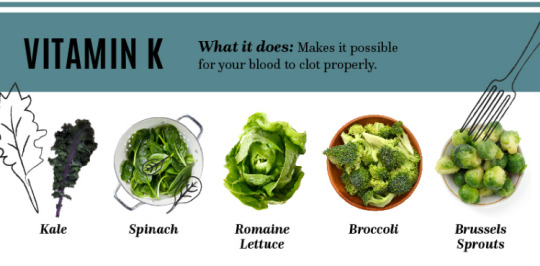












18K notes
·
View notes
Text
Learn Korean Online!
Hii guys!! I decided to make this tutorial for online Korean learning, this is a method my Korean teacher gave us, is completely free, really easy to use, and fun! Made this specially for @diaduithannah, hope you like it! 1. You must enter the page sejonghakdang.org and create an account. You can set it for it to be in english so it is easier to use.

2. Click on: Create an account

3. Once in there, click on the grey mark points so they turn blue, and click on General Membership Signup, if you want you can use the Social Media one but I was taught this method.
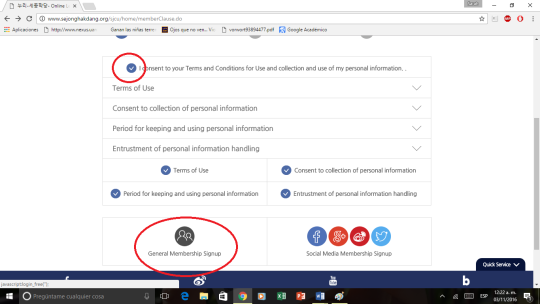
4. Fill in all the information and remember to select that you are a Student
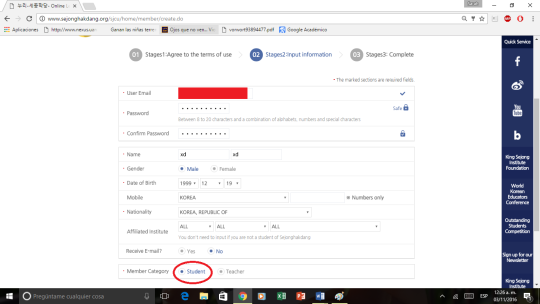
5. Confirm your accont and go back to the home page
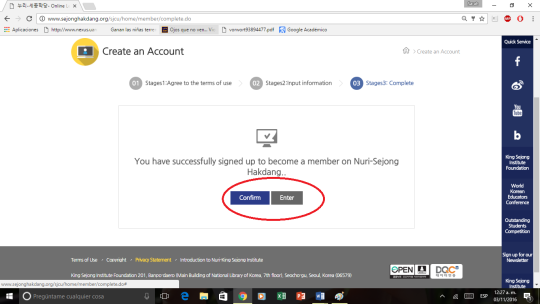
6. Once in the home page, click on Learn and Standard Curriculum

7. Go to the bottom of the page for the beginners option, if you are more advanced look for the one that suits you

8. There will be an option bar, choose Learn.

9. A tab will open up. Click on the korean “start”, this page will give you animations, conversations, audio, explanations, and exercises for you to practice grammar and vocabulary.
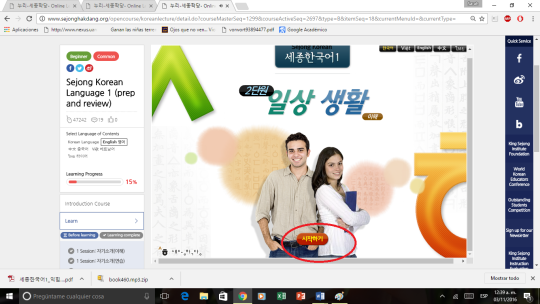
10. This is a little extra, but I would recommend for you to already know how to read Hangul (korean) in case you don’t know and you want to practice deeper the exercises, the page offers textbooks you can print. Click on search and select the option Sejong Korean Workbook in the ebook section. Choose the one that suits you. The one I pointed is for beginners and explains how to read Hangul! However I do recommend watching videos for learning Hangul as well.
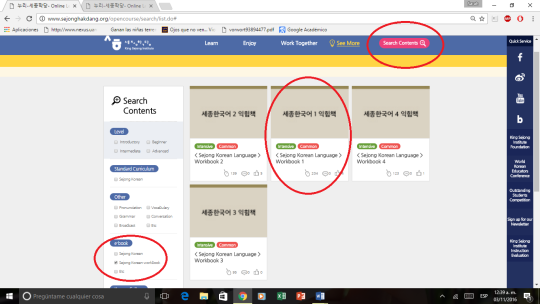
Sincerely guys, this webpage is everything. It even gives you cultural lessons, it teaches you cultural traditions in Korea according to what you are seeing in the lessons! It is really fun and helps a lot. Any doubts about this web page I am all yours! Thank you! Please share if you find it helpful!
9K notes
·
View notes
Text
3 Study Methods You Should Use More Often
This was originally for an article writing assignment, but I thought “why not write something I can also post on my blog?” so here are three study methods that I haven’t seen a lot of in the studyblr community but are definitely worth mentioning.
The Leitner System
Flash cards have remained one of the most popular ways to study. Some people use them to memorize vocabulary, remember answers to specific questions, or even associate dates with events. Although the use of flash cards is convenient, their effectiveness has been reduced due to most people’s habits of prioritizing each card equally and therefore spending too much time memorizing the information on them.
The Leitner System, created by a German popularizer of science named Sebastian Leitner, is a more efficient method of studying that implements the concept of spaced repetition. All the cards start off in one pile. You would first scan through these cards, then test yourself. Each card you answer correctly goes to a second pile, while those you answer incorrectly should be revised then placed at the bottom of the pile. When you review the cards in the second pile and get them correct, they will be promoted to a third pile. An incorrect card will always get demoted to the first pile, even if they had previously been promoted to the last pile.
The reason why this method is so effective is that you end up reviewing the first pile of cards more frequently—the cards you don’t know very well. Some people choose to review their Stack 1 cards every day, Stack 2 cards every other day, Stack 3 cards once every three days, and so on.
Once all your cards have been promoted to the highest box, study them thoroughly and then start over. The continuous revision trains your speed so that you may reach fluency, which allows you to recall the information faster.
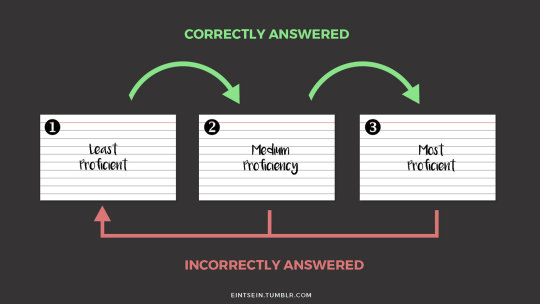
Timed Memorization
The name tells it all: you memorize a certain text within a time limit, normally around five to ten minutes depending on your fluency and memorization abilities. When the timer starts, you begin memorizing. When time is up, you flip to the next page, even if you haven’t finished the previous page yet. Continue until you’ve gone through all your material.
Timed memorization helps you to discipline yourself because your brain thinks that there’s no time for messing around; you have to do this here and now. Make sure to repeat the things you missed and revise everything frequently. This method is actually one of the most effective for cramming as it gives a better coverage than if you spend a whole half hour memorizing one subtopic.
The Memory Palace or Mind Palace
Sound familiar? In BBC’s Sherlock, the ‘highly functioning sociopath’ uses this method to remember vital information and facts. A mind palace is a systematic arrangement of information, each detail corresponding to a specific object in a familiar place. To ensure that you really remember everything, the objects have to appear shocking and conspicuous.
Here’s an example: if I wanted to memorize “crimson, 11, delight, petrichor (the smell after rain)”, aside from imagining Amy Pond or the Doctor saying it, I would first choose a place, let’s say my school. I’d imagine myself walking up to the front gate and seeing that the entire building has been painted the color of blood—crimson. The building would then rise as though it were lifted from the earth and crumble into rubble, controlled by Eleven, the character from Stranger Things. Now, since I can’t really picture delight specifically, I’d probably end up visualizing a colossal sign that simply reads “delight” posted in front of my school. As for petrichor, I’d imagine curves rising out of the puddles on the asphalt after a rainy night, a visual representation of the smell of the rain. Of course, these visualizations have been created to suit my memory. (I wouldn’t know if you watched Stranger Things.)
I used this method when memorizing case studies for geography, although I chose to visualize fictional places from television series and cartoons. Some people do opt to create artificial places, but these often become blurry and are easily forgotten.
As with any study method, repetition is vital to storing the information in your long-term memory. Visit your “palace” as often as you can. Soon enough, you’ll remember the data as well as you remember the place associated with the data.
So there you have it, three lesser known methods of studying that have proven to be immensely efficient. Now, there is no “correct” way to study, but there are methods that can ease your learning process.
22K notes
·
View notes
Text
As someone who got this exact advice from someone, and suddenly started landing every part-time job and internship I applied for (after 5 years and 30 applications a month with like 2 interviews in that whole time), yes yes yes yes it’s totally worth it to do all this no matter how bummed you’d feel having to explain what you like about teamwork
Right now, I’m sifting through 50+ applications for a new entry-level position. Here’s some advice from the person who will actually be looking at your CV/resume and cover letter:
‘You must include a cover letter’ does not mean ‘write a single line about why you want this position’. If you can’t be bothered to write at least one actual paragraphs about why you want this job, I can’t be bothered to read your CV.
Don’t bother including a list of your interests if all you can think of is ‘socialising with friends’ and ‘listening to music’. Everyone likes those things. Unless you can explain why the stuff you do enriches you as a person and a candidate (e.g. playing an instrument or a sport shows dedication and discipline) then I honestly don’t care how you spend your time. I won’t be looking at your CV thinking ‘huh, they haven’t included their interests, they must have none’, I’m just looking for what you have included.
Even if you apply online, I can see the filename you used for your CV. Filenames that don’t include YOUR name are annoying. Filenames like ‘CV - media’ tell me that you’ve got several CVs you send off depending on the kind of job advertised and that you probably didn’t tailor it for this position. ‘[Full name] CV’ is best.
USE. A. PDF. All the meta information, including how long you worked on it, when you created it, times, etc, is right there in a Word doc. PDFs are far more professional looking and clean and mean that I can’t make any (unconscious or not) decisions about you based on information about the file.
I don’t care what the duties in your previous unrelated jobs were unless you can tell me why they’re useful to this job. If you worked in a shop, and you’re applying for an office job which involves talking to lots of people, don’t give me a list of stuff you did, write a sentence about how much you enjoyed working in a team to help everyone you interacted with and did your best to make them leave the shop with a smile. I want to know what makes you happy in a job, because I want you to be happy within the job I’m advertising.
Does the application pack say who you’ll be reporting to? Can you find their name on the company website? Address your application to them. It’s super easy and shows that you give enough of a shit to google something. 95% of people don’t do this.
Tell me who you are. Tell me what makes you want to get up in the morning and go to work and feel fulfilled. Tell me what you’re looking for, not just what you think I’m looking for.
I will skim your CV. If you have a bunch of bullet points, make every one of them count. Make the first one the best one. If it’s not interesting to you, it’s probably not interesting to me. I’m overworked and tired. Make my job easy.
“I work well in a team or individually” okay cool, you and everyone else. If the job means you’ll be part of a big team, talk about how much you love teamwork and how collaborating with people is the best way to solve problems. If the job requires lots of independence, talk about how you are great at taking direction and running with it, and how you have the confidence to follow your own ideas and seek out the insight of others when necessary. I am profoundly uninterested in cookie-cutter statements. I want to know how you actually work, not how a teacher once told you you should work.
For an entry-level role, tell me how you’re looking forward to growing and developing and learning as much as you can. I will hire genuine enthusiasm and drive over cherry-picked skills any day. You can teach someone to use Excel, but you can’t teach someone to give a shit. It makes a real difference.
This is my advice for small, independent orgs like charities, etc. We usually don’t go through agencies, and the person reading through the applications is usually the person who will manage you, so it helps if you can give them a real sense of who you are and how you’ll grab hold of that entry level position and give it all you’ve got. This stuff might not apply to big companies with actual HR departments - it’s up to you to figure out the culture and what they’re looking for and mirror it. Do they use buzzwords? Use the same buzzwords! Do they write in a friendly, informal way? Do the same! And remember, 95% of job hunting (beyond who you know and flat-out nepotism, ugh) is luck. If you keep getting rejected, it’s not because you suck. You might just need a different approach, or it might just take the right pair of eyes landing on your CV.
And if you get rejected, it’s worthwhile asking why. You’ve already been rejected, the worst has already happened, there’s really nothing bad that can come out of you asking them for some constructive feedback (politely, informally, “if it isn’t too much trouble”). Pretty much all of us have been hopeless jobseekers at one point or another. We know it’s shitty and hard and soul-crushing. Friendliness goes a long way. Even if it’s just one line like “your cover letter wasn’t inspiring" at least you know where to start.
And seriously, if you have any friends that do any kind of hiring or have any involvement with that side of things, ask them to look at your CV with a big red pen and brutal honesty. I do this all the time, and the most important thing I do is making it so their CV doesn’t read exactly like that of every other person who took the same ‘how-to-get-a-job’ class in school. If your CV has a paragraph that starts with something like ‘I am a highly motivated and punctual individual who–’ then oh my god I AM ALREADY ASLEEP.
200K notes
·
View notes
Text
Here’s a thought about emotional abuse and how people don’t seem to get it.
I had a conversation with someone about my mother, and about how she has emotionally abused me until three years ago when I finally cut her off completely. And in the end, they told me, “She’s still your mother.”
No, she is not. Biologically, yes - but emotionally, there is nothing left.
If someone told you their partner physically abused them, would you say, “He/she’s still your partner”? Or “You’re still a married couple”? If someone told you they were raped by a friend, would you say, “They’re still your friend”?
What makes parents so holy that the victim of over 20 years of abuse, resulting trauma, and possibly lifelong consequences should just agree - to approve of the relationship? Saying these things is like telling someone to suck it up and stay together with an abusive person.
There’s no immunity in parenthood. Parents are people, and parents can be shitty people, and parents can be shittier people than anyone else you ever meet, because they have that biological thread to use against you, and somehow you’re just supposed to go with it. If it were a friend or a partner, people would tell you to leave them. To cut them off. When it’s your parent, suddenly you’re the one who needs to reconsider your emotions and, you know, just let them hurt you.
Cutting my mother off was the best decision I have made. It made me happier. It made me realise I was, all along, capable of doing things by myself. I regained my sense of independence. I started building healthy relationships, one step at a time, when I recognised the behavioural patterns my mother’s abuse had caused me to develop. I’m not fixed, and I’ll never be a completely whole person, because I have a trauma. But cutting off the person that made me blind to the trauma, the person that made me hurt myself on her behalf, enabled me to at least try live a little. 12 hours after telling her I would not be talking to her, responding her mails, taking her calls, or seeing her until I was healthy and mentally balanced, my friends told me they had not seen me happier. Do I regret my decision?
Not one bit.
3 notes
·
View notes
Text
when i’m asked for areas of further study based on my research

104 notes
·
View notes
Link
I applaud this article so much for pointing out all the messed up romanticized depictions of violence in dramas. It’s never as romantic in real life (I have fortunately never experienced any “romantic” or otherwise type of violence).
From a writer’s perspective I can’t wrap my head around what goes on in the writers’ heads to think that this type of stuff is OK to include. Most of the time it’s not necessary to the plot, and that “plot” is usually a watery-thin based drama on Cinderella expectations of rich assholes falling for you and becoming gentle giants. Boring, cliche and overused tropes galore.
I’m just really glad this article is generating buzz because this is a conversation that needs to be had.
80 notes
·
View notes
Text
Unni’s Know How: Garbage disposal
youtube
Hi guys! It’s been a month since I uploaded the intro video - I just couldn’t film anything because I was living in a guesthouse. Now I’ve finally moved into my own apartment! Yey! In this video I’ll talk about the most unexpected topic for a first-ever vlog episode: garbage disposal! How to separate waste according to the Korean standards? Where and how are you supposed to dump it? We’ll talk recycling, trash bags… It might sound really simple and everyday, which it is, but don’t you wish you would have known about it BEFORE you saw your hostel owner open up your trash bags to separate plastics and papers……..? Yeah. Thought so.
I have also opened my blog at http://unninextdoor.wordpress.com. There’s already some stuff about the KGSP program, finding an apartment in Korea, and so on, so do check it out! Also, check out my friend Karo’s blog at http://milkaro.wordpress.com. She’s fantastic.
If you have any questions, suggestions, ideas or requests, don’t hesitate to leave a comment! Or just write to say hi! If you have more sensitive things to say, feel free to email me at [email protected]. However, please remember I’m just a human being and I too have feelings, so keep it civil ;)
See you again soon!
4 notes
·
View notes
Text
I definitely vouch for TOPIK II 쓰기 이 책으로 끝! Helped me pass the advanced level, it’s great because it not only gives you a lot of phrases and grammar examples, but also tells you the technique and how different types of questions should be answered.
I would also recommend books like 한국어 관용 표현, 한국어 의성어 의태어, and 한국어 속담 한자성어. These little booklets contain idioms and sayings (Korean and hanja derived respectively) and onomatopoeic words (”woof woof”), which can come in handy in TOPIK II. There’s usually at least one reading question which requires you know idioms and can choose the correct one/choose the correct explanation.
Not books, but you should also read news (there are books for this, too, but no need to pay for them!) and pay attention to news headlines, because there’s usually several reading questions where the “question” is a headline and you have to choose the correct “meaning”.
FYI: I hear they’re planning to add a speaking part to TOPIK sometime “soonish” (probably next year at earliest). They’re currently in the process of testing ideas on students. Someone I know from school joined the guinea pigs so hopefully I’ll hear more about this soon...
Korean language learners
What is the most comprehensive book that helped you most on all aspects of studying for Topik?
249 notes
·
View notes